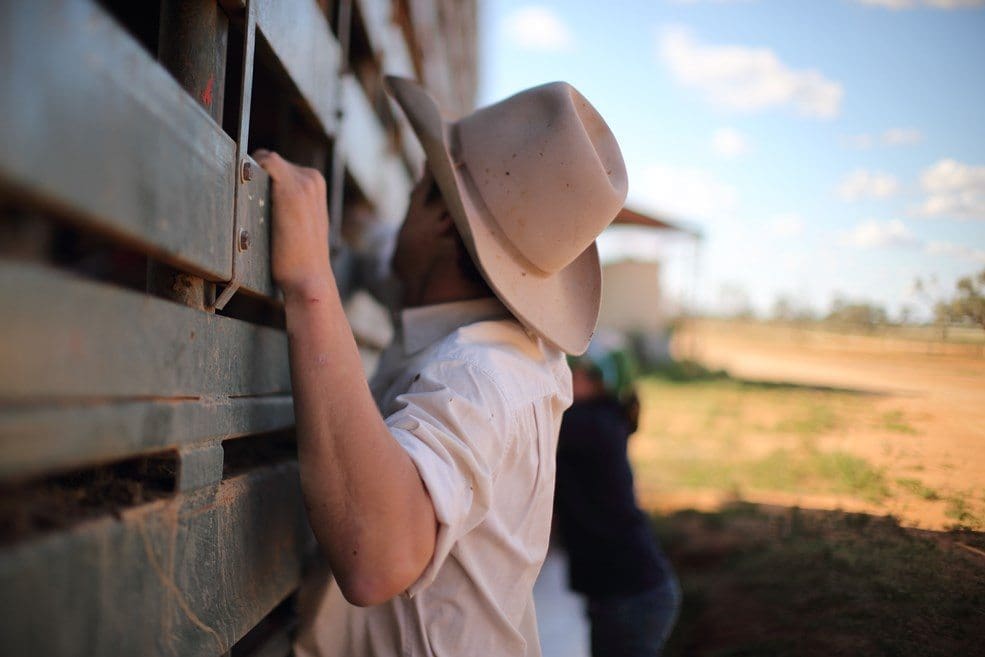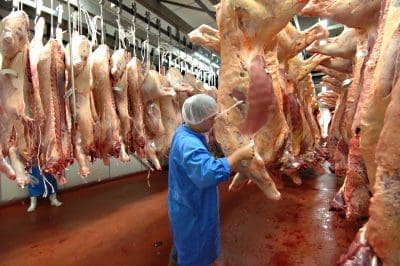Latest listings on our recruitment page, Jobs Central:
- Commodity Trading Manager, VIC – Rimfire client
- General Manager, Row Crops – Gunn Agri
- Chief Executive Officer, Hobart TAS – Rimfire client
- Farm Hand, Central West NSW – Hancock Ag
- Sustainability Adoption Manager – Hewitt Cattle
- Feedlot Supervisor, Hay NSW – Spinifex client
- Seedstock Property Manager NSW – Spinifex client
- Seedstock Operations Manager, Inverell NSW – Spinifex client
- Station Manager, Dry River Station NT – Spinifex client
- Assistant Station Manager, Neman WA – Spinifex client
- Farming Overseer, Goodar Station QLD – Cunningham Cattle
- Bore Runner, Fossil Downs WA – Hancock Ag
- Overseer, Soudan Outstation NT – NAPCo
- Overseer, Castlevale Outstation QLD – NAPCo
- Livestock and Capital Devt Officer, Moura QLD – Hewitt Cattle
- Assistant Manager, Central QLD – Hewitt Cattle
- Feed Mill Manager, SE Melbourne – Rimfire client
- Agribusiness Administrator, Armidale NSW – ABRI
- Sales Cadet, Northern Operations – JBS
- Livestock Buyer QLD – Teys
- Genetic Evaluation Specialist NSW – Angus Aust
- R&D Specialist, Armidale NSW – Angus Aust
- Internal Accountant – Angus Australia
- Feedlot Ops Manager, Moama NSW – Bunnaloo Pastoral
- Station Manager / Couple WA – Maroonah Station
- Feedlot Manager, Chinchilla QLD – Stanbroke
Click here to access these and other exciting meat and livestock supply chain jobs currently listed on Jobs Central.

WHILE management of Q Fever risk appears to be well advanced within the Australian beef processing industry, statistics suggest it is still somewhat overlooked within parts of the livestock production sector.
Data provided from the Australian Q Fever Register shows that more than three quarters of registrants on the database either work in, or frequently visit (ie contractors) a meat processing plant.
Just 14 percent of the registrants on the database came under the category called ‘work with animals,’ which covers cattle and sheep production, either intensive (feedlots) or extensive. And there’s plenty of crossover on grain farms in Australia that also run cattle or sheep at different times of year.
The Australian Q Fever Register (access details below), which has been operating since 2001, is the first non-statutory health register to be established in Australia.
It provides a secure repository of records documenting the Q Fever status for individuals as an aid for the meat and livestock industry in managing workplace health risks from the disease, provides a stakeholder call centre for inquiries, and serves as a valuable and unique resource of data for researchers studying the disease.
Q Fever is a highly infectious zoonotic (transfers easily from animals to humans) disease. The risk of infection is linked to people associated with the meat processing industry, followed by the broader livestock industry. Most affected people recover, but a small proportion may suffer severe and chronic debilitating disease, and in rare instances the disease may cause fatality.
Work-related disease (acute or chronic) due to Q Fever represents a substantial economic cost to the industry from time off work. A Q Fever vaccine has been available in Australia since 1989 and has been shown to be highly protective. The Commonwealth-funded National Q Fever Management Program was run from 2001 to 2006, largely to increase vaccine uptake in people most likely to be exposed to the disease.
Recorded clinical cases of the disease are fewer now than in years gone by, because of uptake of the vaccine.
 The Australian Q Fever Register serves as a repository of records documenting the Q Fever status for individuals, as an aid for the meat and livestock industry in managing workplace health risks from the disease.
The Australian Q Fever Register serves as a repository of records documenting the Q Fever status for individuals, as an aid for the meat and livestock industry in managing workplace health risks from the disease.
The program also provides a help-line service to provide a reliable record of Q Fever immune status for individuals as part of effective Q Fever risk management in the workplace.
The Register provides a permanent and secure repository of an individual’s Q Fever status, ensuring that individuals only need to be tested and vaccinated once as per current health recommendations. This is an important contribution to lowering health risks by ensuring that individuals do not inadvertently get tested or vaccinated more than once, procedures that can result in serious adverse side effects. Once an individual’s Q Fever status is entered into the Register and reconciled, a Q Fever card is produced and mailed to the individual. The card is a durable plastic card the size of a credit-card, printed with indelible ink. The card provides a permanent record of the individual’s Q Fever number and status, that can be carried by the individual and displayed on request.
Any individual whose details have been entered onto the Register can ring the Register and ask for an immediate printed Q Fever status report to be emailed as evidence of their Q Fever status. With an individual’s consent, an authorised employer may check an individual’s Q Fever status as well by calling the Register helpline or through the Q Fever website.
Register staff handle, on average, at least 40 telephone calls per day. The Register is voluntary meaning that information about any individual can only be entered into the Register if that individual signs a consent form authorising use of their personal information.
- The Register can be accessed via the internet at www.qfever.org.

HAVE YOUR SAY